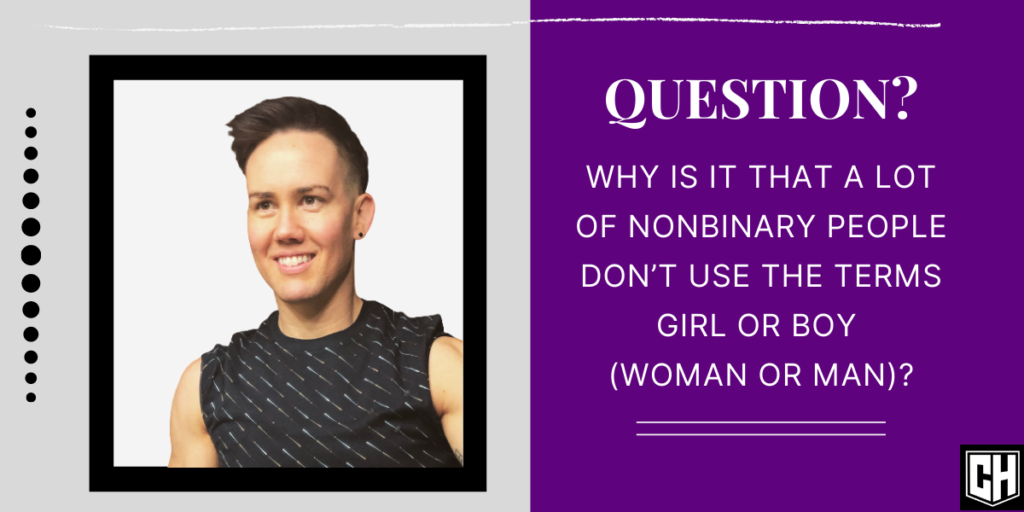|
|
This is a question that I got the other day from a supportive family member who was trying to better understand their nonbinary sibling:
“Why is it that a lot of nonbinary people don’t like the terms boy or girl? Thanks for helping me to understand.”
Here was my answer:
Because everyone’s experience is unique, I definitely can’t answer this for all nonbinary people. However, for me being nonbinary means that neither the identity ‘girl’ or ‘boy’ (‘woman’ or ‘man’) feels like a complete fit.
Both gender labels feel incomplete, even inaccurate.
The people who understand me best understand that on some level, I experience life as both—and in my case, live and am perceived by others that way too.
I think of myself as both, beyond and in-between, which you can learn about here.
Plus, there’s usually a myriad of assumptions about a person’s experiences that get assigned along with those gender labels. Perhaps that’s another reason why the terms girl and boy don’t sit well with many nonbinary people. On a personal level, these gender assumptions rarely hold true for my life experience.
Finally, other language such as pronouns (she/her vs. he/him) all too often seem to follow a girl or boy assignment. So do terms of endearment, such as dear or sweetheart vs. dude or bro, for example. This is another reason why I prefer to steer clear of the gender terms you’re asking about.
View this post on Instagram
I hope this helps your understanding and congrats on growing yourself to better connect with your nonbinary sibling!”
